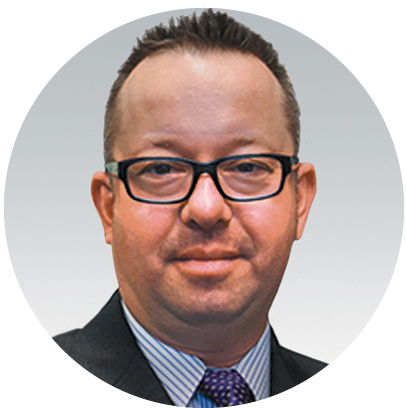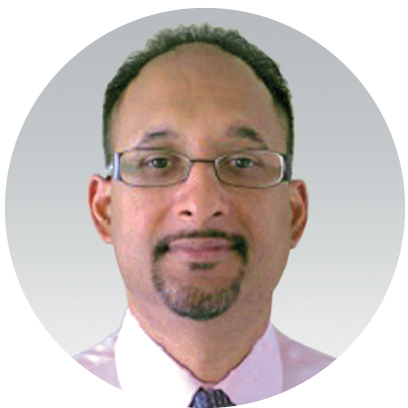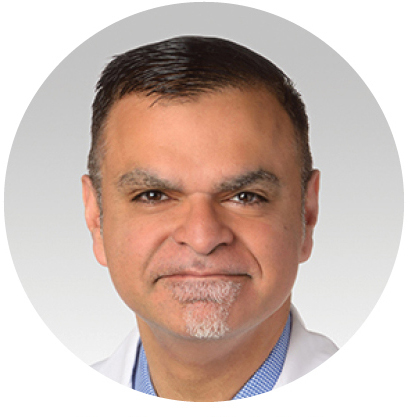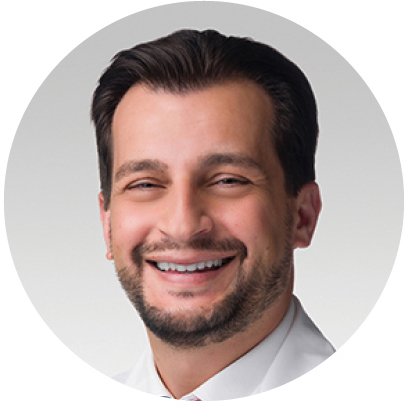Innovation Spotlight: Empowering Feinberg's Unsung Heroes
This story was published in the September 2024 issue of The Philanthropist, a newsletter for supporters and friends of Northwestern University Feinberg School of Medicine. Read past issues here.
Each day, our faculty, students, and trainees at Feinberg dedicate time to innovate new ideas and programs that will move the needle in medicine and science. Here, we spotlight some of the exciting work that often happens behind the scenes and beyond daily clinical care.
Thank you to all the donors who contribute to these efforts, now and in the future. Your philanthropy fuels these projects and programs—enabling their very existence and empowering them to grow for the benefit of patients today and tomorrow.
 Understanding the Neurogenetics of Autism and Schizophrenia
Understanding the Neurogenetics of Autism and Schizophrenia
Peter Penzes, PhD, director of the Center for Autism and Neurodevelopment and the Ruth and Evelyn Dunbar Professor of Psychiatry and Behavioral Sciences, is leading innovative studies into conditions including autism and schizophrenia. Dr. Penzes studies the genetic causes of these conditions with the goal of developing effective drugs to treat them. Specifically, he aims to understand synaptic structural plasticity in the brain, a process underlying communication between neurons that is disrupted in many neurodevelopmental and neuropsychiatric disorders. Dr. Penzes and other Northwestern scientists also are recent recipients of a $17 million grant from the National Institute of Mental Health’s Silvio O. Conte Centers for Basic Neuroscience or Translational Mental Health Research. The grant will fund four separate research projects into autism and schizophrenia that Dr. Penzes will oversee.
For more information on supporting the efforts above, contact Mary Kreller at 312-503-0742 or mary.kreller@northwestern.edu.
 Regenerating Bladder Tissue in Urology Patients
Regenerating Bladder Tissue in Urology Patients
Arun Sharma, PhD, research associate professor in the Department of Urology, studies methods of regenerating bladder tissue in lieu of surgical operation. Bladder augmentation enterocytoplasty, a widely adopted surgical practice for bladder dysfunction, poses short- and long-term issues— but Dr. Sharma and his collaborators believe there is a better way to engineer urinary health. By combining elastomeric scaffolds with specific stem and progenitor cell populations, Dr. Sharma and his team are revolutionizing the field of urologic regenerative medicine and tissue engineering using nano- and bioinspired materials. In a recent two-year study, published in Proceedings of the National Academy of Sciences (PNAS) Nexus, his team successfully regenerated bladder tissue in baboons. The next phase of this important research is to move to clinical trials to decipher how these findings operate in humans.
For more information on supporting the efforts above, contact Terri Dillon at 312-503-4837 or terri-dillon@northwestern.edu.
 Harnessing AI to Detect Congenital Anomalies in Babies
Harnessing AI to Detect Congenital Anomalies in Babies
Fizan Abdullah, MD, PhD, director of the Center for Global Surgery at the Robert J. Havey, MD Institute for Global Health, developed a mobile application that uses artificial intelligence to detect congenital anomalies in babies. The application acquires demographic information, GPS location, and photographs of untreated anomalies in children and adults. Dr. Abdullah and his team hope that further development of this app will make it widely accessible and user-friendly, leading to a greater number of communities to partner with and a larger number of healthcare professionals who are trained to utilize the application. Expanding the use of the app will allow a substantial number of patients to obtain critical operations, mitigating lifelong challenges for affected individuals. Dr. Abdullah’s research will profoundly impact low-and middle-income countries that are disproportionately affected by anomalies that occur in intrauterine development.
For more information on supporting the efforts above, contact Jenn Burke at 312-503-4635 or jennifer.burke@northwestern.edu.
 Improving Cancer Clinical Trials and Treatments with AI
Improving Cancer Clinical Trials and Treatments with AI
Mohamed Abazeed, MD, PhD, an associate professor in the Department of Radiation Oncology, is studying the uses of artificial intelligence to personalize cancer care. Dr. Abazeed and his team of biologists and computer scientists are focused on developing new technologies that make cancer treatments more precise. He is confident that an emphasis on AI and innovative technologies that use machines will lead to more accurate methods of treatment and shared information capabilities that will benefit cancer patients in the Chicago area and beyond. Currently, Dr. Abazeed is testing new AI technologies for patients with lung cancer in clinical trials, with the goal of providing physicians with novel augmented intelligence capabilities.
For more information on supporting the efforts above, contact Nicole Langert at 312-503-1656 or nicole.langert@northwestern.edu.